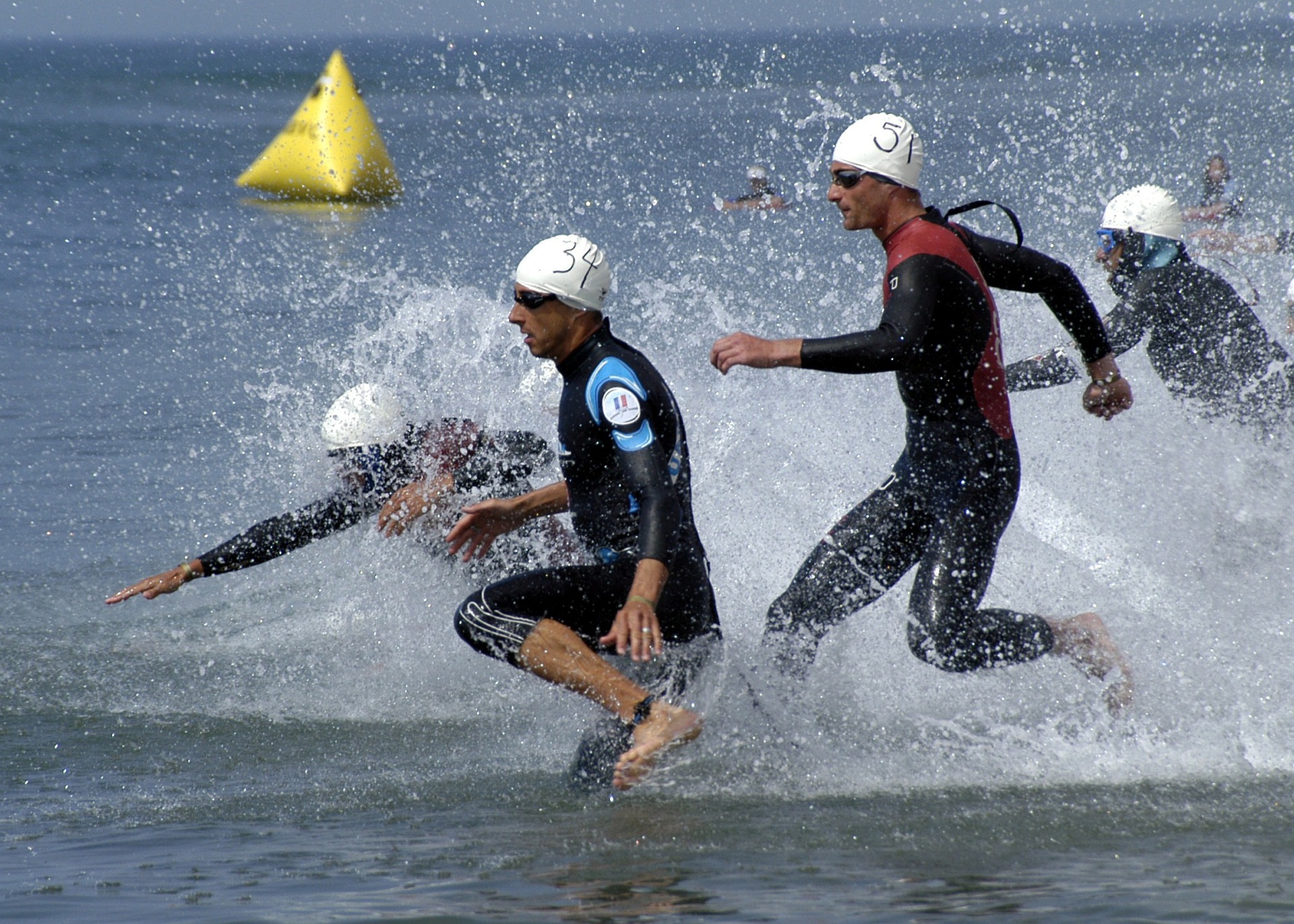Have you ever thought about how incredibly difficult it is to be a triathlete? So many factors affect how well and how fast you can swim, bike, whether in training or races. And, one small mistake or failure in any one of those many areas will result in a disappointing result with little to no opportunity to turn the race around.
any one of those many areas will result in a disappointing result with little to no opportunity to turn the race around.
I actually see triathlon three ways: as always complex, sometimes complicated, and, yes, in the end, quite simple. Let me explain.
Complex
Everyone who knows anything about triathlon knows that it is a very complex sport, regardless of the distance, with many contributors to training and competitive performance. Those factors that impact  triathlon performance are both within and outside of triathletes and, as a consequence, both within and outside of their control.
triathlon performance are both within and outside of triathletes and, as a consequence, both within and outside of their control.
Environmental elements that have an immense influence on how you swim, bike, and run in training and races include weather, water temperature and condition, bike and run course surface and terrain, and elevation. The sheer variability of these external areas can cause the best preparations and efforts to end in failure. Frustratingly, none of these influences on performance are within your control. Ultimately, all you can do is adapt to this complexity the best you can.
can do is adapt to this complexity the best you can.
Other external forces include people with whom you interact. Teammates, other competitors, coaches, and officials, as well as physical contact in the swim, drafting on the bike, getting passed on the run are more pieces of the “swim, bike, and run fast” puzzle that makes the puzzle more difficult to complete.
And don’t forget equipment. Though not quite as equipment intensive as, say, Formula 1 auto racing, the ability to swim, bike, and run fast is highly dependent on the complex interplay of your wetsuit, bike,  running shoes, and related gear. This impact starts with testing and finding the right equipment for your individual capabilities and needs, continues with bike fit, and concludes with ensuring that all of your equipment is optimally prepared.
running shoes, and related gear. This impact starts with testing and finding the right equipment for your individual capabilities and needs, continues with bike fit, and concludes with ensuring that all of your equipment is optimally prepared.
Internal factors add even more to this complexity. Physical conditioning, swim, bike, and run training, technique, tactics, sleep, and nutrition all have a huge impact on how you perform on race day. For you to swim, bike, and run your fastest consistently, you must maximize all of these areas to get the most out of your physical capabilities.
And let’s not forget the mental side of our sport. You need to train and strengthen your “mental muscles” (e.g., motivation, confidence, intensity, focus, and mindset). You also must have a well-stocked mental toolbox for when problems arise including goal setting, positive self-talk, mental imagery, training and race routines, and breathing, to name a few. The interplay of all of these mental influences makes finding the ideal combination even more difficult.
toolbox for when problems arise including goal setting, positive self-talk, mental imagery, training and race routines, and breathing, to name a few. The interplay of all of these mental influences makes finding the ideal combination even more difficult.
Due to the very nature of triathlon, we can’t do anything to make it less complex. It is those very complexities that make our sport so interesting, challenging, and, ultimately, rewarding. All you can do is understand everything that is involved in making triathlon so complex and look for ways to manage them to the best of your ability.
Complicated
Unfortunately, too often, triathletes (and coaches) take our sport beyond the realm of complexity and make it unnecessarily complicated. This new level of complication occurs entirely in the minds of those involved, and those who ultimately suffer from these complications are triathletes themselves.
involved, and those who ultimately suffer from these complications are triathletes themselves.
You have a tough enough time responding positively to the many obstacles that I described above that are outside of your control. It is entirely unfair and undermining that you be expected to also deal constructively with the obstacles that get erected in your minds by yourself, coaches, and our destructive sport culture.
These mental barriers include overinvestment in your racing (you want to care about your triathlon, but you don’t want to care too much), perfectionism (which doesn’t play nice with triathlon because nothing ever goes perfectly as planned), fear of failure (epidemic in our culture and the #1 reason athletes comes to  me), a preoccupation with results, expectations, and pressure. These obstacles conspire to do a massive mental whammy on you in the form of a loss of motivation, decline in confidence, worry, stress, anxiety, distraction, and a veritable tsunami of negative emotions including fear, frustration, anger, disappointment, hopelessness, sadness, and despair. When add these ingredients are added to the already boiling cauldron called triathlon, you get a toxic stew that makes consistently fast swimming, biking, and running a near impossibility.
me), a preoccupation with results, expectations, and pressure. These obstacles conspire to do a massive mental whammy on you in the form of a loss of motivation, decline in confidence, worry, stress, anxiety, distraction, and a veritable tsunami of negative emotions including fear, frustration, anger, disappointment, hopelessness, sadness, and despair. When add these ingredients are added to the already boiling cauldron called triathlon, you get a toxic stew that makes consistently fast swimming, biking, and running a near impossibility.
Simple
I apologize for painting such a depressing picture of what it takes to be successful as a triathlete. But I will end on a very positive note. While accepting the unavoidable complexities of our sport, your goal is to let go of the complications that get heaped upon you, not an easy task, to be sure. In fact, I believe that freeing your mind of these psychological and emotional complications is the Holy Grail of triathlon and, in fact, a happy and successful life. Though beyond the scope of this article (much of my writing has been devoted to showing triathletes how they can drink from the Holy Grail, so please visit my blog to learn more), I can offer you a perspective that may help you focus on what’s important and, in doing so, remove the metaphorical weight vest that is laden with our sport’s complexities and complications.
happy and successful life. Though beyond the scope of this article (much of my writing has been devoted to showing triathletes how they can drink from the Holy Grail, so please visit my blog to learn more), I can offer you a perspective that may help you focus on what’s important and, in doing so, remove the metaphorical weight vest that is laden with our sport’s complexities and complications.
Despite everything I’ve written so far in this article, triathlon is actually quite simple. How’s that, you may wonder. First, swimming, biking, and running are activities that most of us enjoyed when we were young; it was, literally, child’s play. And what can be more simple and pure as what we did for fun as kids? Also,  because when you are about to begin the swim on race day, you should have only one thought on your mind: swim, bike, and run to the best of your ability! That’s it, that’s all, it’s that simple. You can call it bring it, full gas, full send, attack, charge, or just finish. Regardless, the message is the same: Clear your mind of all of the complexities and complications (i.e., the crap!) and just get from the start to the finish in the fastest and more fun way possible.
because when you are about to begin the swim on race day, you should have only one thought on your mind: swim, bike, and run to the best of your ability! That’s it, that’s all, it’s that simple. You can call it bring it, full gas, full send, attack, charge, or just finish. Regardless, the message is the same: Clear your mind of all of the complexities and complications (i.e., the crap!) and just get from the start to the finish in the fastest and more fun way possible.
Of course, that singular focus is easier said than done for all of the reasons I’ve described above. At the same time, its simplicity is also its strength because the idea of triathlon as child’s play and just “bringing it” is easy to wrap your arms around and focus on. And it is easy to build a wall of simplicity around yourself as the start of the race approaches that can shield you from the massive clutter that can overfill your brain until you feel like it will explode.
So, next time the complexities and complications of our sport begin to take hold of you, remember how simple triathlon really is—just swim, bike, and run, and have fun doing it!—and just go. Regardless of how the race turns out, you’ll feel good having given it your all. And if you continue to keep it simple and keep enjoying yourself, sooner or later, you’ll finish a race without major mistakes, and the outcome will be oh so satisfying.







